#nft game developers
Explore tagged Tumblr posts
Text
Which blockchain is the best NFT marketplace development?

The world of digital art and collectibles has changed in recent years due to the popularity of non-fungible tokens (NFTs). As a result, as the demand for NFT markets has increased, there are now numerous blockchain platforms competing to be named the best NFT market development. Many blockchains differentiate themselves from many competitors due to their features, security, and ease of creation.
In this blog, we’ll look at some of the best blockchain platforms for the development of an NFT marketplace and what makes them unique.
.
Ethereum:
Ethereum is one of the most popular and well-known blockchains for NFTs. Due to its robust smart contract functionality and its widespread adoption, it is the preferred choice for NFT market developers.
Ethereum's robust standards (ERC-721, ERC-1155) make it easy to create and trade NFTs. Developers can easily add custom features and functionality to their marketplaces.
However, Ethereum's scalability issues and high gas fees have caused some developers to look for alternative blockchains.
.
Binance Smart Chain (BSC):
Binance Smart Chain (BSC) is a fast-growing blockchain platform that has emerged as an alternative to Ethereum for the development of NFT marketplace. BSC has lower transaction fees than Ethereum and faster confirmation times, making it an attractive option for developers who want to reduce costs and enhance the user experience. BSC is also compatible with Ethereum’s virtual machine (EVM), making it easy to port Ethereum-based projects into the Binance ecosystem.
.
Flow:
Developed by Dapper Labs, the team behind the popular CryptoKitties game, Flow is specifically designed to support NFTs and decentralized applications (DApps) at scale. Flow boasts high throughput and low latency, making it suitable for NFT marketplaces with large user bases and high transaction volumes. Its unique architecture separates transaction processing from smart contract execution, ensuring optimal performance and scalability. Flow's developer-friendly tools and comprehensive documentation further streamline the process of building NFT marketplaces on the platform.
.
Polygon (formerly Matic Network):
Polygon is an Ethereum Layer 2 scaling solution that aims to solve blockchain's scaling issues. Polygon uses sidechains and plasma to significantly reduce transaction costs and speed up confirmation times.
Polygon is a great choice for NFT marketplace developers who want to build and deploy their own NFT markets. With minimal changes to the Ethereum-based smart contract, developers can enjoy improved scalability and better user experience.
.
Tezos:
Tezos is an open-source, self-modifying blockchain that provides on-chain management and formal smart contract validation, improving security and robustness. Tezos’ unique consensus algorithm – Liquid Proof of Sake (PoS) – guarantees decentralization and resilience to censorship while providing high throughput and low energy consumption.
Tezos' support for NFTs and its ability to support non-fungible NFTs make it an ideal platform for developing the NFT market, especially for projects focused on social governance and security.
.
Conclusion:
Selecting the right blockchain for the development of the NFT marketplace depends on several factors, such as scalability, safety, cost-efficiency, and developer preference. Ethereum is still the most popular choice, but alternative blockchains such as Binance smart chain, flow, polygon, and tezos offer impressive features and advantages that are tailored to different use cases and needs.
Developers should carefully consider their requirements and objectives when selecting a blockchain platform that will best meet their project objectives and technical abilities.
Partnering with a well-known NFT marketplace developer who is well-versed in blockchain technology will help you choose the best blockchain platform for your project's development.
With the help of a well-known blockchain development company, you can bring your vision of an NFT market to life and take advantage of the rapidly expanding digital collectibles & assets market.
#nft#nft marketplace#nft marketing services#NFT Arts#NFT Games#NFT Exchange Development Company#cryptocurrency#cryptoexchange#crypto#blockchain#bitcoin#etherum#web3#nft game development#nft game developers
1 note
·
View note
Text
The Top NFT Games to Watch in 2023
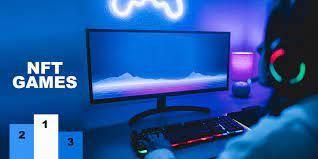
In 2023, the gaming world is really getting into NFT (Non-Fungible Tokens) games, thanks to how they mix gaming with blockchain tech. These NFT games are super popular now because they're doing new and exciting things with nft game design. What's cool about these games is that they don't just give players a fun time; they also let players actually own part of the game, like characters or items, as digital assets. Companies that make these NFT games are really pushing the limits to create awesome games.
Let's look at some of the best NFT games out there this year. They're not just popular because they're fun to play; their nft game design is also something special. Each game has its own unique way of blending the game world with the world of digital ownership. Whether it's through creating your own virtual spaces, collecting unique digital items, or even managing a fantasy sports team, these games let you do more than just play; they let you own a piece of the game world. This new way of thinking about game design is what makes these NFT games stand out and why so many people are excited about them.
NFT game development companies are at the forefront of this trend. They're always coming up with new ideas and ways to make their games better and more interesting. As we go through 2023, we'll likely see even more amazing games with unique nft game designs that offer both great gaming experiences and the thrill of digital ownership.
Axie Infinity - Redefining Digital Pets
Axie Infinity remains a frontrunner in the NFT gaming space. This game revolves around collecting, breeding, and battling fantasy creatures called Axies. With its engaging gameplay and economy based on Ethereum, the game stands out for its nft game design, which integrates blockchain technology seamlessly into the core gameplay. Players can truly own, buy, sell, and trade their in-game assets, making it a pioneering model in the NFT gaming world.
Decentraland - A Virtual World of Possibilities
Decentraland is more than just a game; it's a virtual world owned by its users. The nft game development company behind Decentraland has created a platform where players can buy land, build on it, explore, and interact in a vast virtual universe. The use of NFTs in this game allows for true ownership of virtual real estate, making it a unique blend of gaming, social media, and digital ownership.
The Sandbox - Create, Own, and Monetize
The Sandbox is a community-driven platform where players can create, own, and monetize their gaming experiences. The nft game development company has empowered users with tools to create their own worlds and game experiences, which they can then sell as NFTs. Its voxel-based nft game design offers limitless possibilities, attracting gamers and creators alike.
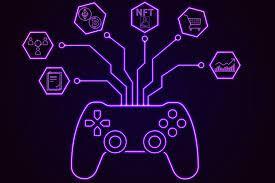
Gods Unchained - Strategy Card Gaming Meets NFT
Gods Unchained brings the traditional card gaming experience into the blockchain era. This game allows players to collect cards, build decks, and engage in competitive matches. The nft game design ensures that every card is an NFT, giving players full ownership of their collections. This approach has revolutionized the concept of digital collectibles in gaming.
Sorare - A New Era of Fantasy Football
Sorare has taken the world of fantasy sports to a new level. This blockchain-based game allows players to collect, trade, and manage a virtual football team with digital player cards issued as NFTs. The nft game development company's innovative approach to integrating sports, gaming, and NFTs has attracted a massive following, especially among football enthusiasts.
CryptoKitties - The Pioneer Continues to Thrive
CryptoKitties, one of the first games to popularize NFTs, remains relevant in 2023. The game revolves around collecting, breeding, and trading virtual cats, each with unique attributes. Its simple yet addictive nft game design has set the standard for many NFT games that followed.
Conclusion
The NFT gaming landscape in 2023 is diverse and exciting, with nft game development companies continuously innovating to provide immersive and engaging experiences. These top NFT games not only represent the cutting edge of blockchain gaming but also offer a glimpse into the future of digital ownership and gaming economies. As the year progresses, we can expect to see more groundbreaking developments in nft game design, further solidifying NFT games' position in the mainstream gaming industry.
Read more blogs about the gaming industry:
Blending Worlds: The Rise of RPG Elements in Battle Royale Games
Top 10 Buzzing NFT Games for 2023
The Art of Mobile Games: Exploring Visual Trends and Techniques
0 notes
Text
How to Balance PvE and PvP in MMORPGs
Creating a successful MMORPG requires careful attention to one of the most challenging aspects of MMORPG game development: balancing Player versus Environment (PvE) and Player versus Player (PvP) content. When these two gameplay pillars are properly balanced, they create a rich, dynamic world that keeps players engaged for years. When they're not, your game can quickly lose its player base.

Why Balance Matters in MMORPG Game Development
MMORPGs thrive on diverse player preferences. Some players love raiding dungeons and defeating epic bosses, while others crave the thrill of outmaneuvering human opponents. The most successful MMORPGs don't force players to choose—they create ecosystems where both playstyles can coexist and complement each other.
As experienced developers know, imbalance can lead to serious problems:
Player exodus when one type of content receives preferential treatment
"Dead" game areas when certain content lacks meaningful rewards
Community division between PvE and PvP players
Power imbalances that make content trivial or frustratingly difficult
Core Principles for Balancing PvE and PvP
1. Separate Skill Systems When Necessary
One fundamental approach in MMORPG game development is implementing different rules for skills in PvE versus PvP contexts. Many abilities that work well against predictable AI enemies can become overwhelming when used against other players.
Consider World of Warcraft's approach: many crowd control abilities have different durations when used against players compared to monsters. This simple adjustment prevents PvP matches from becoming frustrating stun-lock festivals while still allowing those abilities to remain useful in dungeons.
2. Create Meaningful Progression Paths for Both
Players need to feel their preferred gameplay style offers legitimate advancement. A common pitfall in MMORPG game development is making the best gear exclusive to one content type.
Guild Wars 2 solves this elegantly by offering multiple paths to equivalent gear. Whether you're exploring story content, raiding, or competing in structured PvP, you're making meaningful progress toward your character's growth.
3. Design Complementary Reward Structures
Smart reward structures encourage players to engage with both content types without forcing them into gameplay they don't enjoy.
Final Fantasy XIV implements this brilliantly:
PvP offers unique cosmetic rewards and titles that don't affect PvE power
PvE progression rewards that remain relevant to casual PvPers
Seasonal PvP rewards that maintain engagement without creating power imbalances
4. Consider Scaling Systems
Scaling systems are increasingly common in modern MMORPG game development, allowing characters of different power levels to compete on more even terms.
Elder Scrolls Online's battle scaling system normalizes stats in PvP areas, ensuring that gear differences matter but don't make fights impossible. This approach lets newer players participate while still rewarding veterans' progression.
Technical Implementation Challenges
Skill Effect Modifiers
Implementing separate modifiers for skills across different content types creates additional complexity. Your system architecture needs to support contextual rule changes that can dynamically adjust how abilities function based on whether they're being used in PvE or PvP scenarios.
For example, a stun ability might last 5 seconds against a dungeon boss but only 2 seconds against another player. These contextual adjustments help maintain balance without creating separate ability sets.
Data-Driven Balance
Successful MMORPG game development requires continual refinement based on player behavior data. Implement robust telemetry systems to track:
Win rates in different PvP brackets
Completion times for PvE content
Class/build representation across content types
Economic impacts of different activities
This data forms the foundation for informed balance decisions rather than relying solely on player feedback, which often skews toward the most vocal community members.
Case Studies: Learning From Success and Failure
Guild Wars 2: Structured PvP Success
ArenaNet's approach to structured PvP in Guild Wars 2 represents one of the most elegant solutions in MMORPG game development. By completely separating PvP builds and gear from PvE progression, they created a truly skill-based PvP environment while allowing their PvE systems to scale naturally.
World of Warcraft: The PvP Power Experiment
Blizzard's introduction of PvP Power and PvP Resilience stats was an attempt to solve balance issues by creating separate gear progressions. While theoretically sound, this approach created problems:
Players needed separate gear sets for different content
PvE players felt forced into PvP to remain competitive
The system added complexity without solving core balance issues
The eventual removal of these stats and return to unified gear with contextual modifiers proves that simpler solutions are often better in MMORPG game development.
Integration Strategies That Work
Territorial Control With Benefits
Territorial PvP becomes more compelling when it offers benefits that extend to PvE gameplay. Black Desert Online uses this approach effectively, with guild warfare providing economic advantages that benefit both PvP-focused players and their more PvE-oriented guildmates.
Optional Flag Systems
Many successful MMORPGs implement flag systems allowing players to opt in or out of open-world PvP. This creates natural tension and excitement without forcing unwilling participants into combat situations they don't enjoy.
New World's territory control system exemplifies this approach, making PvP meaningful while keeping it optional for those who prefer PvE content.
Common Pitfalls to Avoid
In MMORPG game development, certain design decisions consistently lead to balance problems:
Making the best PvE gear require PvP participation (or vice versa)
Balancing classes primarily around one content type
Allowing gear advantages to completely overshadow skill in PvP
Creating "mandatory" grinds across content types
Neglecting one content type in major updates
Finding the Sweet Spot: Blending Content Types
The most successful MMORPGs find creative ways to blend PvE and PvP content:
ESO's Cyrodiil combines large-scale PvP with PvE objectives
FFXIV's Frontlines mixes competitive objectives with NPC enemies
Guild Wars 2's World vs. World incorporates PvE elements into massive realm warfare
These hybrid approaches satisfy both player types while encouraging interaction between different playstyles.
Conclusion
Successful MMORPG game development requires treating PvE and PvP balance as equally important, interconnected systems. By implementing contextual modifiers, separate progression paths, and data-driven balancing, you can create a game world where diverse player preferences are respected and rewarded.
Remember that perfect balance is never achieved—it's an ongoing process that requires constant attention and adjustment based on player behavior and feedback. The most successful MMORPGs view balance as a journey rather than a destination, with each update bringing the game closer to that elusive equilibrium that keeps all types of players engaged and satisfied.
By focusing on systems that allow both playstyles to thrive without undermining each other, you'll create an MMORPG that stands the test of time and builds a loyal, diverse community.
#game#mobile game development#multiplayer games#metaverse#nft#vr games#blockchain#gaming#unity game development
5 notes
·
View notes
Text
COMING SOON !#FunfarGrab interactive #nft Minting... #FunfartArcade in Development. use #FunfartGames #Tokens $FARTS to #SetPlayWin with #Games #Collectibles #merch and more...
Grow with us as we explore and build interactive media!
#art#digital art#nftart#nftcommunity#opensea#nft#nft crypto#nftcollectibles#nftcollection#nftcollectors#crypto gaming#crypto#metaverse game development#metaverse
4 notes
·
View notes
Text
Key Trends Shaping 𝐍𝐅𝐓 𝐆𝐚𝐦𝐢𝐧𝐠 in 2025! 🎮💎
The NFT gaming landscape is evolving faster than ever! From 𝐏𝐥𝐚𝐲-𝐭𝐨-𝐄𝐚𝐫𝐧 𝟐.𝟎 to 𝐀𝐈-𝐝𝐫𝐢𝐯𝐞𝐧 experiences, here are the top trends that will define the future of 𝐍𝐅𝐓 𝐠𝐚𝐦𝐢𝐧𝐠 𝐢𝐧 𝟐𝟎𝟐𝟓. 🌟
Ready to 𝐛𝐮𝐢𝐥𝐝 the next big NFT game? 𝐂𝐨𝐧𝐭𝐚𝐜𝐭 𝐮𝐬 to know more about NFT Game: https://vasundhara.io/services/game-development-company
#nft#art and animation#game development#nftcommunity#nft crypto#nftart#nftcollectors#game#unity game#animation#usa
2 notes
·
View notes
Text
The Different Types of NFT’s You Should Know About

NFTs (Non-Fungible Tokens) are unique digital items stored on a blockchain, proving ownership of assets like digital art, in-game items, or virtual land. Unlike cryptocurrencies, NFTs cannot be exchanged for identical items. They are valuable due to their uniqueness, limited supply, and secure ownership records. NFTs are popular in art, gaming, and virtual real estate. As the NFT gaming industry grows, companies like Q99 Studio in India are creating games that allow players to buy, sell, and earn NFTs, helping expand the market and offer new opportunities for creators and gamers.
#nft game development#nft games#game developers#game development#unity game development#hire game developers#mobile games#nft#game development services#mobile game development#game development company
2 notes
·
View notes
Note
Why don't you like the smiling critters designs?

Not to be a hater, but the designs just feel a little too generic for me. It gives me "We have FNAF at home vibes". The only design I kinda like out of all of them, is the unicorn but I have a unicorn bias 😔
#Anonymous#Idk I feel like a bit more effort could have been put in when designing them#And again my issues with poppy's play time as a whole stem from the nft shit the creator tried to pull#And the creator's attitude about game development in general
7 notes
·
View notes
Text
.
#palworld has revealed to me just how many monster taming fans are full of shit#'don't play this game it's made by a company that endorses AI and NFTs! instead play this game made by a company that endorses AI and NFTs!#'this game is just a soulless cashgrab!' meanwhile pocketpair are struggling to keep their servers up#pals have more personality than pokemon could ever hope to have in any of the switch games#oh and as if BDSP weren't soulless cashgrabs#or ultra sun and ultra moon#also they'll recommend other games and they're all turn based RPGs#and ironically enough play a lot more like pokemon than palworld does#or recommend hacks and fangames that TECHNICALLY infringe on TPC's rights but they don't wanna hear that!#big rofl#absolute lack of self awareness#hazy rambles#btw if you're reading this and like the idea of a survival game with monsters but don't like how dark and edgy palworld is#look up anitons#it's probably gonna restart development#it has a steam page and there should be a discord server invite link
6 notes
·
View notes
Text
Integration Developer - Azure
Job title: Integration Developer – Azure Company: Ocado Job description: ‘s retailers online using the cloud, robotics, AI, and IoT. We provide services to partner clients globally via our innovative…, you will be responsible for designing, developing, implementing, and maintaining robust and scalable integration solutions on the Microsoft… Expected salary: Location: Hatfield, Hertfordshire Job…
#agritech#Android#Automotive#Blockchain#business-intelligence#data-engineering#edtech#ethical AI#Frontend#game-dev#IoT Solutions Architect#Machine learning#metaverse#mobile-development#Networking#NFT#power-platform#project-management#proptech#robotics#rpa#SEO#site-reliability#SoC#technical-writing#telecoms#uk-jobs#ux-design#visa-sponsorship
0 notes
Text
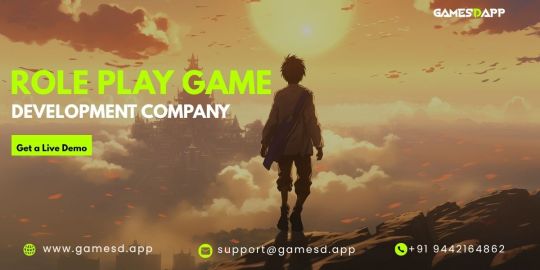
Gamesdappis a Role Playing Games RPG Development Company launches its own Role Play Gaming or RPG Gaming Platform where players can blend with the game world with our RPG Game Development Services.
#Role Playing Game Development#Role Playing Game Development Company#RPG Development Company#Role Playing Games Development Services#NFT Role Play Game Development Company#Defi Role Playing Game Development#Blockchain Role-Playing Game Development
0 notes
Text
Explore the top 10 buzzing NFT games of 2023 in our latest blog! Discover the most exciting and innovative blockchain-based games that are capturing players' attention this year. From immersive virtual worlds to strategic collectibles, these NFT games offer unique gameplay experiences and the chance to own digital assets. Dive into the world of NFT gaming with our expert picks.
0 notes
Text
The Role of NFTs & Blockchain in MMORPGs: A Fad or the Future?
I've been gaming since I was a kid, and I've watched MMORPGs evolve from text-based MUDs to today's sprawling 3D worlds. But lately, there's been a ton of buzz around blockchain and NFTs in MMORPG game development. Everyone seems to have strong opinions, so I wanted to take a moment to cut through the hype and think about what this might really mean for the games we love.
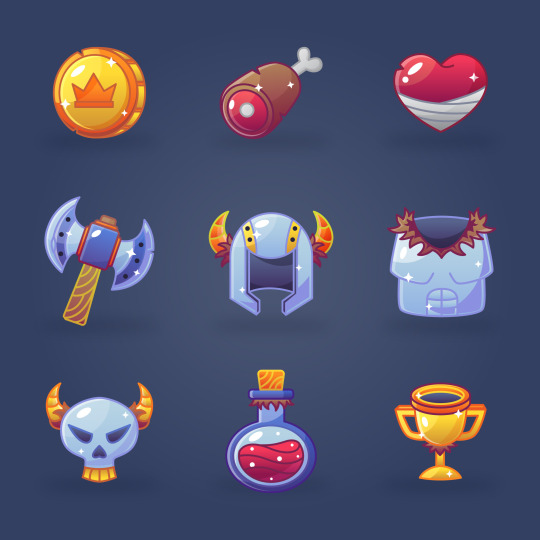
What's Actually Happening Here?
If you haven't been keeping up with crypto gaming news, here's the simple version: NFTs are unique digital tokens that prove ownership of digital items. In MMORPGs, this could mean your epic sword, your character skin, or even your virtual land actually belongs to you—not just the game company.
Several games are already testing these waters. Axie Infinity let players earn real money through gameplay. The Sandbox and Decentraland sell virtual land as NFTs. New titles like Guild of Guardians are trying to create more traditional MMO experiences with player-owned assets.
The Exciting Possibilities
When I think about blockchain in MMORPG game development, I get genuinely excited about a few things:
We might finally solve the ownership problem. How many times have you spent countless hours grinding for gear, only to lose it all when a game shuts down or bans your account? True ownership could change that forever.
Player economies could get way more interesting. EVE Online and Runescape already have fascinating economies, but imagine if the rarity of items was verifiably limited and players had real stakes in the game's success.
Crafters could become legends. In a blockchain MMORPG, a master blacksmith could literally sign their creations, building reputation across the game—or potentially even across multiple games.
The Real Challenges
But let's be honest—there are some serious hurdles that aren't going away soon:
Game balance becomes a nightmare. When items have real-world value, how do you prevent pay-to-win? How do you add new content without crashing the value of existing items? These aren't easy questions for MMORPG game development teams.
The tech isn't quite there yet. Most blockchains still struggle with transaction speed and fees. An active MMORPG needs to process thousands of actions per second—something current blockchain tech isn't built for.
Gamers are (rightfully) skeptical. Many of us have seen companies try to cash in on trends without adding real value to gameplay. The backlash against NFT announcements from major studios wasn't just internet drama—it reflects genuine concern about the future of our hobby.
Finding a Balance
I think the most promising path forward isn't about going all-in on blockchain or rejecting it entirely. It's about thoughtful integration that actually makes games better:
Make ownership optional. Why not have both traditional and blockchain servers? Let players choose what model works for them.
Focus on fun first. The most successful blockchain MMOs will be great games first, investment platforms second. If the game isn't fun without the earning potential, it won't last.
Be transparent about the economy. Players need to understand how items enter the game, what controls inflation, and how the developers make money. Without this transparency, trust breaks down quickly.
So... Fad or Future?
After diving into this topic, I don't think it's either-or. Some elements of blockchain will likely find their way into mainstream MMORPG game development over time, while the more speculative aspects might fade away.
What excites me most isn't NFTs themselves, but the conversations they're sparking about ownership, value, and community in virtual worlds. These are questions worth exploring whether or not a particular technology ends up being the answer.
For developers building new MMORPGs, my advice is simple: if blockchain elements enhance your game experience, consider them—but never at the expense of what makes MMORPGs special in the first place: community, adventure, and that magical sense of being part of something bigger than yourself.
What do you think? Are you excited about owning your virtual gear, or do you think this is just another tech bubble? I'd love to hear your thoughts in the comments!
#game#mobile game development#multiplayer games#metaverse#nft#blockchain#unity game development#vr games#gaming
3 notes
·
View notes
Text
Drop by the digitalknuckles Virtual NFT Gallery where we host our Art and digital collectibles. The gallery is hosted on Spatial Virtual World and Opensea NFT marketplace.

Dont miss out on the latest NFT Drops, game announcements, and exclusive access to digital collectibles. Join the NFT community on this New journey into W3B.
#art#digital art#nftart#nftcommunity#opensea#nft#nft crypto#nftcollectibles#nftcollection#nftcollectors#nftgaming#nftgallery#metaverse#metaverse game development#digitalknucklesnft#digital artist#digitalart#crypto gaming#crypto#digital collectibles#nft art#openseanft#spatial
4 notes
·
View notes
Text
Trusted NFT Game Development Company for Web3-Ready Games
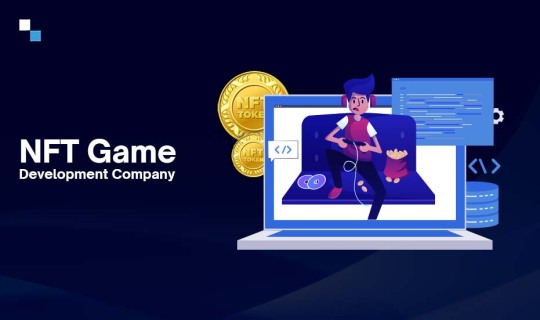
Are you developing an immersive, asset-focused game with NFT features? Antier can assist you. We are a top NFT game development company that offers end-to-end services—from concept through design to blockchain and marketplace
0 notes
Text
Gaming Technology Trends to Watch in 2024

Gaming in 2024 is set to revolutionize the industry with groundbreaking advancements in technology. Virtual Reality (VR) and Augmented Reality (AR) are creating more immersive experiences, while blockchain and NFTs are reshaping game economies. The rise of 5G enhances connectivity, enabling seamless cloud gaming and multiplayer experiences. Accessibility and inclusivity are becoming focal points, ensuring games cater to diverse audiences. The metaverse and social gaming are transforming platforms into interactive social hubs, and cloud gaming continues to expand with lower latency and broader libraries. At Devstree Studio, we’re at the forefront, crafting innovative games that redefine possibilities in this ever-evolving landscape.
#game development#html5 game#metaverse#metaverse game development#nft game development#game developers#video games#ar vr technology#augmented reality#vr games#unity game development#unity3d#unity 3d game development
2 notes
·
View notes
Text
Why Web3 Startups Are Winning Big in the New Era of the Internet
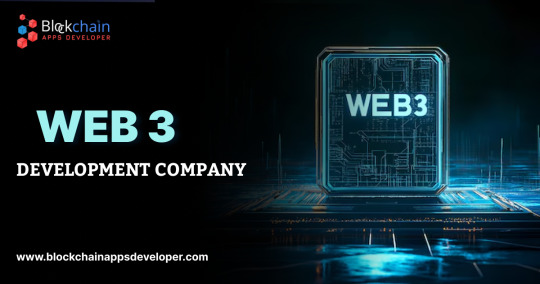
The Internet’s New Frontier
We’re witnessing a major shift in the digital landscape—one where ownership, identity, and value are no longer controlled by centralized entities. This is Web3: a decentralized internet where users hold the keys, and startups are rewriting the rules of engagement.
But make no mistake, Web3 startups aren’t just launching new apps. They’re shaping entirely new digital economies. To succeed in this next-gen web, you need more than just a great idea. What counts is how well you execute, how scalable your product is, and how deeply rooted your tech foundation becomes.
In this blog, let’s break down what it takes for a Web3 startup to grow, scale, and lead the charge by focusing on key pillars like Web3 DApp Development, Web3 Wallet Development, Web3 Game Development, and strategic integration with an AI Development Company.
Building for a Decentralized World
Getting the Web3 Tech Stack Right
Unlike traditional Web2 ventures that rely on centralized servers and vendor APIs, Web3 projects are built using smart contracts, blockchain protocols, and decentralized storage systems. It’s a whole different ball game and far more technical.
That’s where the right Web3 Development Company comes in, providing essential services such as:
Smart contract creation and thorough auditing
Cross-chain operability
Custom token design and liquidity support
End-to-end decentralized infrastructure deployment
With these building blocks in place, your startup won’t just be functional; it’ll be ready for serious growth.
From Ideas to Tokens: The Web3 Startup Journey
Things move fast in Web3. A solid idea can go from whiteboard to token launch in a few short months. But without strategic guidance, many great ideas fail to scale.
Working with experienced developers helps startups navigate blockchain ecosystems, including Layer 1 and Layer 2 networks, NFTs, DeFi protocols, and DAO systems. These insights make all the difference when building scalable, secure, and user-ready products from day one.
Why DApps Are Defining the Future
Decentralized Applications (DApps) are a cornerstone of Web3. They run on blockchains using smart contracts, making them transparent, secure, and user-governed.
Common DApp use cases include:
DeFi platforms
NFT marketplaces
DAOs
Creator-focused SocialFi apps
An expert Web3 DApp Development Company ensures that these applications aren’t just decentralized, but also fast, intuitive, and built for long-term growth.
Establishing Trust Without Middlemen
In the Web3 world, trust isn’t based on reputation; it’s earned through action. Your community won’t rely on brand legacy; they’ll judge you based on your transparency, engagement, and code.
Key elements to build trust include:
Verified smart contract audits
Public GitHub activity
Open roadmaps and documentation
Community governance via DAOs
Backed by a team like BlockchainAppsDeveloper, startups gain immediate credibility and earn the support needed to grow sustainably.
Web3 Wallets: The Gateway to Everything
In Web3, wallets aren’t just for holding tokens; they’re the key to identity, access, and interaction across decentralized apps.
Must-have features in modern Web3 wallets:
Seamless login without seed phrases (MPC-based wallets)
NFT storage and portfolio viewing
Cross-chain support
Privacy controls managed by users
Choosing the right Web3 Wallet Development Company ensures your wallet is secure, easy to use, and built for both beginners and pros.
Community: The Engine Behind Every Great Web3 Startup
Web3 startups don’t grow alone. They grow with a community. From early adopters to active DAO voters, your users aren’t just supporters, they’re stakeholders.
Strong community strategies include:
Frequent dev updates
Token-based participation in governance
Reward programs for bug hunters and contributors
Ongoing engagement on Discord, Twitter, and forums
If your community believes in your mission, your growth becomes exponential.
Web3 Game Development: Playing the Long Game
Gaming in Web3 isn’t just fun, it’s economic. Through play-to-earn models and tokenized items, players can own what they earn, sell what they collect, and truly participate in the game economy.
Key features for successful Web3 games:
Blockchain-based NFT ownership
Tradeable, interoperable in-game assets
Cross-platform gameplay
Player-driven, decentralized economies
By teaming up with a leading Web3 Game Development Company like BlockchainAppsDeveloper, startups can create gaming experiences that are as profitable as they are immersive.
When Web3 Meets AI: The Next-Level Advantage
Artificial Intelligence is becoming a silent powerhouse in Web3. Whether it’s automating operations, detecting fraud, or enhancing user interactions, AI unlocks smarter ways to scale.
How an AI Development Company adds value to Web3 startups:
Sentiment analysis in community governance
Real-time anomaly detection in wallet behavior
Price prediction models for NFTs and tokens
AI-powered assistants and chatbots for 24/7 support
The result? Platforms that stay secure, adapt faster, and engage better, without sacrificing decentralization.
Why Some Web3 Startups Fail (and How to Avoid It)
The Web3 space is full of ambition, but also full of pitfalls. Many promising projects crash because of preventable mistakes.
Red flags to look out for:
Complicated or clunky onboarding
Unverified or vulnerable smart contracts
Tokenomics without utility or balance
Weak or passive communities
Failure to pivot with market demands
With guidance from a reliable Web3 Development Company, startups can dodge these issues early and move forward with confidence.
What’s Next for Web3 Startups? Trends to Watch in 2025
To stay competitive, startups need to track what’s next and get ahead of it.
Emerging trends gaining traction:
Liquid staking and restaking solutions
Decentralized physical infrastructure (DePIN)
On-chain identity and social graphs
Zero-knowledge proof privacy systems
Cross-chain integrations for NFTs and GameFi
Startups that align with these trends early are positioned to become leaders, not followers.
Conclusion: Web3 Belongs to the Builders
Web3 isn’t just a trend. It’s a fundamental shift in how the internet works. The startups that win here will be the ones that focus on real value through technology, community, and transparency.
From DApps to wallets, gaming to governance, what you build today lays the foundation for a decentralized tomorrow.
Why Choose BlockchainAppsDeveloper?
BlockchainAppsDeveloper stands at the forefront of Web3 innovation. As a trusted Web3 Development Company, it offers tailored solutions for DApp development, wallet integration, GameFi platforms, and token launch strategies, all built with security, scalability, and long-term success in mind.
Combining blockchain expertise with AI-powered enhancements, BlockchainAppsDeveloper helps emerging startups go from concept to launch with clarity and speed.
Build smarter. Build faster. Build for Web3 with BlockchainAppsDeveloper.
#Web3#Web3 Development#Web3 Startups#Web3 Wallet Development#Web3 DApp Development#Web3 Game Development#Decentralized Internet#Blockchain Technology#Smart Contracts#Metaverse#DeFi#NFTs#Crypto Wallets#dApps#Web3 Ecosystem#Decentralized Finance#Web3 Security#Tokenization#DAOs#Web3 Infrastructure#AI in Web3#Web3 Trends 2025#Next-Gen Web#Web3 Innovation
0 notes